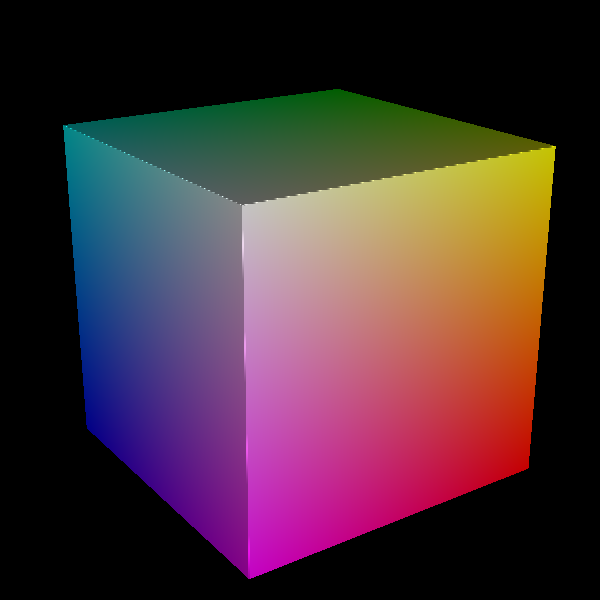Note
Go to the end to download the full example code
Visualize surfaces#
Here is a simple tutorial that shows how to visualize surfaces using DIPY. It
also shows how to load/save, get/set and update PolyData and show
surfaces.
PolyData is a structure used by VTK to represent surfaces and other data
structures. Here we show how to visualize a simple cube but the same idea
should apply for any surface.
import numpy as np
import fury
Import useful functions
Create an empty PolyData
my_polydata = fury.lib.PolyData()
Create a cube with vertices and triangles as numpy arrays
my_vertices = np.array(
[
[0.0, 0.0, 0.0],
[0.0, 0.0, 1.0],
[0.0, 1.0, 0.0],
[0.0, 1.0, 1.0],
[1.0, 0.0, 0.0],
[1.0, 0.0, 1.0],
[1.0, 1.0, 0.0],
[1.0, 1.0, 1.0],
]
)
# the data type is needed to mention here, numpy.int64
my_triangles = np.array(
[
[0, 6, 4],
[0, 2, 6],
[0, 3, 2],
[0, 1, 3],
[2, 7, 6],
[2, 3, 7],
[4, 6, 7],
[4, 7, 5],
[0, 4, 5],
[0, 5, 1],
[1, 5, 7],
[1, 7, 3],
],
dtype="i8",
)
Set vertices and triangles in the PolyData
fury.utils.set_polydata_vertices(my_polydata, my_vertices)
fury.utils.set_polydata_triangles(my_polydata, my_triangles)
<vtkmodules.vtkCommonDataModel.vtkPolyData(0x29b38dd60) at 0x1112c6ce0>
Save the PolyData
Surface saved in my_cube.vtk
Load the PolyData
cube_polydata = fury.io.load_polydata(file_name)
add color based on vertices position
cube_vertices = fury.utils.get_polydata_vertices(cube_polydata)
colors = cube_vertices * 255
fury.utils.set_polydata_colors(cube_polydata, colors)
print("new surface colors")
print(fury.utils.get_polydata_colors(cube_polydata))
new surface colors
[[ 0 0 0]
[ 0 0 255]
[ 0 255 0]
[ 0 255 255]
[255 0 0]
[255 0 255]
[255 255 0]
[255 255 255]]
Visualize surfaces
# get Actor
cube_actor = fury.utils.get_actor_from_polydata(cube_polydata)
# Create a scene
scene = fury.window.Scene()
scene.add(cube_actor)
scene.set_camera(position=(10, 5, 7), focal_point=(0.5, 0.5, 0.5))
scene.zoom(3)
# display
# fury.window.show(scene, size=(600, 600), reset_camera=False)
fury.window.record(scene=scene, out_path="cube.png", size=(600, 600))

Total running time of the script: (0 minutes 0.068 seconds)
